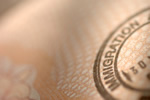Getting to grips with the French healthcare system

Getting to grips with the French healthcare system
Once you’ve actually arrived in your chosen destination, how you access the French healthcare system depends on your category as a new expat on the block. If you’re an employee, a legal resident in France, a business owner or a retiree or inactive person, you’re allowed to access French healthcare via payments to social service contributions, known as ‘cotisations sociales’. These give you access to the French system, although you may be asked for proof of payment.
As an employee in France with a contract of employment, you’ll be relieved to hear it’s your employer who must sort out your social service protection. It’s possible to use your home country health insurance whilst you're working abroad, although this is dependent on the terms of your insurance. If you arrive from a non-European Union country, your healthcare coverage will be via Assurance Maladie. Neither process is set up as a matter of course, with checking with your employer the best way forward.
Expat entrepreneurs and business owners need to complete the process via either the RSA or URSSAF, with a letter from either the proof of your affiliation. Proving your status and completing the application is made by providing the required documentation and, until your verification comes through, you’ll be covered by a temporary social security number. If you’ve lived in France for longer than three months, you’ll be allowed access to public healthcare, with your application via PUMA needing documentation including proof of residence, your passport, birth certificate with legal translation, bank details, CERFA form and your ‘medecin traitant’ declaration.
If you’re inactive or have retired to France, you’ll need the S1 from your country of origin and a completed Cerfa 60-3406 declaration. Other documents required include proof of a pension, your birth certificate and passport, and the entire process should take around two months to complete. Expat students are required to register on France’s dedicated ‘healthcare for students’ website and should be done before you arrive as you’ll need to provide a long list of relevant documentation. After approval, you’ll receive a social security number and must create your ‘amile’ online account through which you’ll apply for your carte vitale.
Related Stories:
- Expats unhappy abut changes to Korean points-based visa system - July 17, 2020
- Local French communities mourning the Brexit loss of Brit expat councillors and voters - July 13, 2020
- Tips for newly-arrived expats on dealing with Japan’s healthcare system - July 9, 2020
- Expat arrivals in Germany confused over dual healthcare insurance - June 3, 2020
- Pros and cons of buying your very own French castle - March 6, 2020
- Buying a French ruin and making it home - January 21, 2020
- Expat retirees considering Thailand should note healthcare changes - December 11, 2019
- Getting to grips with Japanese culture as a newly arrived expat - December 3, 2019
- World healthcare surveys might well confuse the average expat - November 26, 2019
Latest News:
- Tips on a trouble-free relocation as an expat overseas - July 20, 2020
- Expats find peace in the covid-19 refuge of Dahab town - July 20, 2020
- Is Kuwaitization the unintended result of the oil price crash? - July 20, 2020
- Expats unhappy abut changes to Korean points-based visa system - July 17, 2020
- Chiang Mai and Bangkok no longer bargain locations for expats - July 17, 2020
- Expats in Malaysia still banned from overseas travel - July 17, 2020
- Vietnam welcomes expats to its safe, affordable lifestyle - July 16, 2020
- Asian tiger economies reach out to expats in Hong Kong - July 16, 2020
- HSBC Asia to cut back on internal expat relocations - July 16, 2020
- Tips on integrating for newly-arrived expats - July 15, 2020


